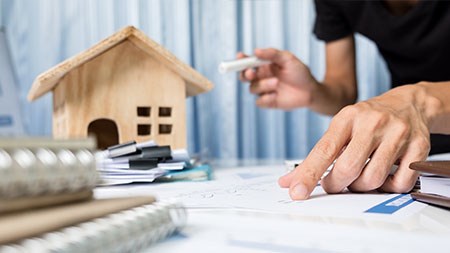Auctions offer an excellent opportunity to invest in quality properties at (often better than) market-related rates—provided that bidders have done their homework before raising their hand.
That's the word from Park Village Auctions' Director Clive Lazarus, who offers expert tips for purchasing a house on auction.
WATCH : Tips on how to buy a property on auction.
1. Preparation is crucial to success
Buyers should take time to research the property and familiarise themselves with the different types of property auctions that will influence the sale's conditions. For example, a liquidation sale versus a sheriff's auction, otherwise known as a 'sale in execution'.
Clive: "Buyers should have a firm budget before the auction. Gather information about the property, its location and nearby amenities, and consider the accessibility of the area. This will help you to determine a fair price and what you are willing to pay.
2. Viewing is essential
Auction properties are sold voetstoots, meaning "as is", advises Clive. He adds, "Inspect the property closely on viewing day, noting any repairs or modifications that you would need to make. Don't be afraid to ask the auctioneer questions, either. Find out if any fixtures, fittings, or plants have been excluded and if there is currently a lease in place (which you should have sight of) which will have to be honoured.
Voetstoots means the buyer will purchase the house in its current condition, and the seller is under no legal obligation to repair any damages or faults unless otherwise stated in the Conditions of Sale.
3. Obtain a copy of the Conditions of Sale
Beyond the "as is" clause, the Conditions of Sale will cover issues such as the confirmation period, outstanding rates and taxes, applicable VAT or transfer costs and commission. Clive says that it is imperative that the conditions are understood and encourages buyers to engage with the auctioneer should they have any queries.
4. Understand your total costs
Buyers are to use the Conditions of Sale to tally up their total costs and secure the correct funds upfront. That being their finance, with VAT, transfer duties, and commission fees.
Clive explains: "The nature of the sale will dictate who is liable for paying outstanding rates and taxes (if any), and commission—which differs from auctioneer to auctioneer. It is also important to note that the commission typically excludes VAT. All of these costs must be carefully calculated before applying for finance.
"You must be able to follow through on the transaction if you make the highest bid. Once the hammer goes down, the deal is concluded. You are liable for the agreed price, failing which you will be required to pay damages."
5. Reap the rewards
"Informed buyers are poised to take advantage of the benefits offered by auction properties," says Clive. "Between voluntary and distressed sales, various houses are available to suit a buyer's needs. From the 'foot-in-the-door' property to superlative estate homes, apartments and even mansions ready for the taking.
"Auction sales are swift and transparent. When buyers have done their homework, they can acquire quality homes at a better value than a conventional sale through agents –because there are no lengthy negotiations, and bidders can 'name their price'.
Writer : Deidré Jonker




